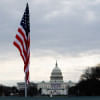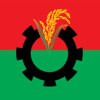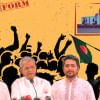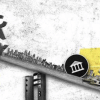The country has drastically changed after the quota movement, for better or worse. However, one of the most evident changes is probably the sudden spike in political interest amongst the youth. Be it for an autocratic regime ruling for 16 years or the terrorisation of the university campuses by politically motivated groups, the youth have been disinterested in the political proceedings of our country previously. However, the quota movement completely changed the status quo. Over the span of a month, this generation has become politically active, vocal about their opinions, and have begun to express their ambitions about the future of Bangladesh.
For a country that hasn't had a fair election in a while, the primary target of our youth is ensuring a fair election. However, before the next election comes into play, people have high hopes for the interim government.

"I expect the interim government to take enough time so that a new opposition party can be formed," said Rezwana Saima, a student of Dhaka University, "If BNP and Jamaat-e-Islami win the majority of the seats next election, and they will probably create a coalition to form the government. That would leave the country without a strong opposition party. Previously, without the presence of a strong opposition, there was no one to control and question the government's actions in the parliament. I'm hoping for a student-led political party to be formed and for that, they need enough time by the interim government. Even if the newly formed party cannot win the election, they will prove to be a strong opposition in the parliament, which is the core of a functioning democracy."
The interim government also needs to ensure the independence of the judiciary system, according to Nurtaz Henna, a student of Sir Salimullah Medical College, "Losing faith in the judicial system of the country instigates criminal activities and forces the common people to accept injustices. It forces people to take the law into their own hands, proof of which we have seen during the last regime. The judiciary system must be reformed to keep it completely independent and free from all political affiliations so that it is not subservient to any particular political party."
Apart from that, changes in the constitution are also needed as per Sumitro Barua Ucchash, a student of Ahsanullah University of Science and Technology, "Restoring the election under a neutral interim government is necessary. Awami League scrapped the section for the caretaker government from the constitution after coming to power and that must be restored to ensure fair elections moving forward. I also want to see actions being taken to uphold the freedom of speech as articulated in our constitutions. People should not have to live in fear of what they think, feel and believe."

"The separation of power between the three systems i.e., executive, legislative and judiciary branches must be ensured," continued Saima, "Decentralisation of power of the Prime Minister by the constitution should also be ensured. Moreover, if a state has its own religion, it cannot be truly secular because in that case, that particular religion will always ends up getting prioritised the most. So, the state religion should be removed so that Bangladesh can be a truly secular country."
"The constitution of Bangladesh has been reformed 17 times till now and each time, the political party in power have reformed it for their own benefits," said Henna, "The constitution should be reformed in such a way that it becomes one for the people, of the people and by the people. The harassment caused by the Digital Security Act has traumatised the nation long enough and it should be reformed. Moreover, there should be an act that prohibits the same candidate from becoming the prime minister more than two times."
Since independence, across military rule, Awami League and BNP regimes, the only constant in this country has been the oppression of the indigenous people. With the wind of change at bay, Ching Key Prue Ethin, a student of Armed Forces Medical College hopes to see some positive changes, "The government should turn their attention to the people of the hill tracts whose land had been taken forcefully and restore the property to their original owners. Actions must be taken against those who made resorts by cutting down thousands of trees in the hilly areas, and by compelling people to leave their own land. People of the hilly areas need to be able to be self-ruled. External interference with things other than ensuring safety in the Chittagong Hill Tracts should be limited. Moreover, the case of Kalpana Chakma should be resolved immediately."
Although the quota for government jobs has been reformed after the movement, Ethin believes there is still room for improvement regarding the Indigenous quota, "Most of the Indigenous communities toil really hard to access basic education. Considering their lack of privilege, the one percent allotted to them is less than the bare minimum, whereas the freedom fighter quota is still at five percent. So, the quota should be reformed to allot more to the people who are actually in need of it– the indigenous people, rather than the descendants of freedom fighters."

However, after 16 years of autocracy, students are fearing the wave of totalitarianism to be the new culture of Bangladesh. To prevent political parties in future from becoming autocrats and to ensure a swift flow of democracy, several steps need to be taken, according to Tasfia Tarannum Ridita, a student of BRAC University, "A good place to start would be by individually strengthening the three institutions of the government in order for the institutions to be independent of each other, encouraging free press, addressing concurrent corruption etc. But most importantly, we need to ensure electoral reforms such as ensuring the impartiality of the election commission, which was previously influenced by the ruling party."
Anindya Alam, a student at Bangladesh University of Engineering and Technology (BUET), believes that new political parties must come forward for a healthy flow of democracy, "Newer political parties with an injection of progressive ideas must come forward and appeal to the rural populace. More and more intellectuals should engage in politics. Our education system should also be reformed to reflect our history of undemocratic tyrants and politically educate people about our political climate and the electoral process. And lastly, the news media must stop serving the regime and must serve the people. They should be allowed to advocate for their right to publish unbiased news and reflect an authentic description of events."
Henna believes that the development of the country under the interim government must be prioritised before the nation is ready to have a fair election, "Politically speaking, a fair and transparent election is crucial to re-establish democracy. But it is also true that no political party currently has the trust of the people. They are either potential tyrants or have already established themselves as one. Although a fair election is long overdue, it is necessary to prioritise reforms and development before we can approach an election."
According to Saima, there are different aspects to a functioning democracy other than an election, "Democracy in itself is a broad concept. Sure, a fair election is a key part of it but it also includes transparency, accountability, the right to vote, freedom of speech and freedom of expression. It should also ensure protecting the minorities and ensuring the safety of our indigenous communities. When people from all walks of life can truly express their opinions without having to fear violent repercussions, only then can we truly be a democratic country."
The National Curriculum and Textbook Board (NCTB) curriculum has been criticised for a while now and yet the Awami League government turned a blind eye to it. With the fall of the regime, the youth believe it's the perfect time to reform our education system. "In the education sector, the real history of the country must be taught to the students rather than that which is manipulated by any particular political party," said Saima, "The root of a lot of problems in our society lies in the fact that people cannot accept people who're different from them. We see instances of intolerance of people other faiths, men being intolerant of women etc. If children are taught about diversity and acceptance in their textbooks, a change is plausible. The education system has to be inclusive so that it is accessible to everyone."
Changes regarding women's and children's affairs are also long overdue, according to Ridita, "Proper laws taking action against women being vilified or harassed for their preferences is long overdue. The legal system must work to punish perpetrators of sexual violence. Martial rape should also be prosecuted."
But for all of this to work, the people must abandon the idea of the usual major party rhetoric and choose the representatives for their qualifications, qualities, promises and deliveries.
"Fanaticism has been a major problem in our country," said Sumitro, "We must learn to criticise and call out the bad policies even if that favours our preferred political parties. Mass people are still stuck on this AL, BNP binary which I believe is harmful for our democracy. We need to learn to look elsewhere and break out of this binary when it fails us."
Remind Ifti to be less quiet at [email protected]








Comments